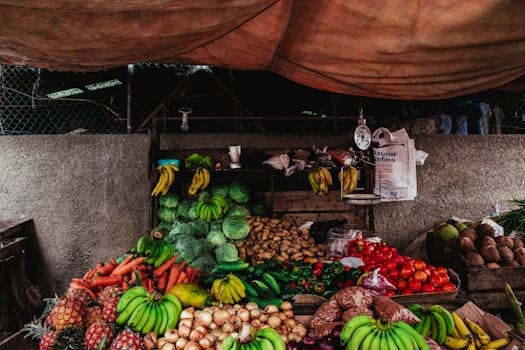Synthetic Food Regulations: Lab-Grown Rights
As the population continues to grow and food resources become increasingly scarce, scientists and researchers are turning to new methods of food production. One such method is the creation of synthetic or lab-grown food products. While this technology has the potential to revolutionize the food industry, there are many concerns surrounding its safety and regulation. In recent years, there have been calls for regulations to be put in place to ensure the safety and ethical production of synthetic foods. In this article, we will explore the topic of synthetic food regulations, specifically focusing on the rights of lab-grown food producers and consumers.
The Rise of Synthetic Food
Synthetic food, also known as cultured or lab-grown food, is produced through the process of cellular agriculture. This process involves using cell cultures to grow meat, dairy, and other food products in a laboratory setting. This technology has gained popularity in recent years as a potential solution to issues such as food insecurity, environmental sustainability, and animal welfare concerns.
Lab-grown meat, in particular, has garnered a lot of attention. It is seen as a more sustainable alternative to traditional meat production, as it requires significantly fewer resources and produces less greenhouse gas emissions. Additionally, lab-grown meat has the potential to eliminate the need for animal slaughter, addressing ethical concerns surrounding factory farming.
The Need for Regulations
With the growing interest and investment in synthetic food technology, there is a need for regulations to ensure the safety and ethical production of these products. Currently, the regulations surrounding synthetic food are limited, leaving room for potential risks and ethical concerns.
One of the main concerns surrounding synthetic or lab-grown food is its potential health risks. Since this technology is relatively new, there is still much to be learned about its long-term effects on human health. Without proper regulations and safety measures in place, there is a risk that these products could cause harm to consumers.
Additionally, there are concerns about the ethical implications of lab-grown food production. The process of cellular agriculture involves the use of animal cells, raising questions about the rights of animals and the potential exploitation of their cells for food production. Without regulations in place, there is a risk that these practices could be carried out without consideration for animal welfare.
The Rights of Lab-Grown Food Producers
With the development of synthetic food technology, a new industry is emerging, and with it, the need for protection of the rights of lab-grown food producers. These producers invest significant time, effort, and resources into the development and production of lab-grown products and should be granted the same rights and protections as traditional food producers.
One of the main areas where regulations are needed is in the labeling and marketing of lab-grown food products. As mentioned earlier, there are concerns about the potential health risks of these products, and consumers have the right to be informed about what they are consuming. Regulations must be put in place to ensure that lab-grown food products are clearly labeled and marketed as such, allowing consumers to make informed decisions when purchasing these products.
Another important aspect to consider is the protection of intellectual property rights. Lab-grown food producers invest heavily in research and development to create their products, and they should have the right to protect their innovations and ideas from being copied or stolen by competitors. Regulations must be put in place to safeguard the intellectual property of lab-grown food producers.
The Rights of Consumers
Despite potential health risks, there is a growing demand for synthetic food products. As such, regulations must also ensure that these products are safe for consumers to consume. This means that lab-grown food producers must adhere to strict safety standards and regulations to ensure that their products are free from harmful substances and contaminants.
Additionally, consumers have the right to know what ingredients are used in the production of lab-grown food products. Regulations must require full transparency from producers, including information about the source of the cells used, any additives or preservatives, and any potential health risks.
The Future of Synthetic Food Regulations
While there are ongoing debates about the safety and ethical implications of synthetic food, it is clear that regulations must be put in place to ensure the responsible production and consumption of these products. Without proper regulations, there is a risk that synthetic food could do more harm than good. As the technology continues to advance, it is essential that regulations keep up to protect the rights of both producers and consumers.
In Conclusion
Synthetic food regulations, specifically those governing lab-grown rights, are crucial as this technology continues to gain traction in the food industry. Proper regulations must ensure the safety of consumers, protection of producer rights, and ethical production practices. As we move towards a more sustainable and ethical future, it is essential that we prioritize the development and implementation of responsible regulations for the production and consumption of synthetic food.










